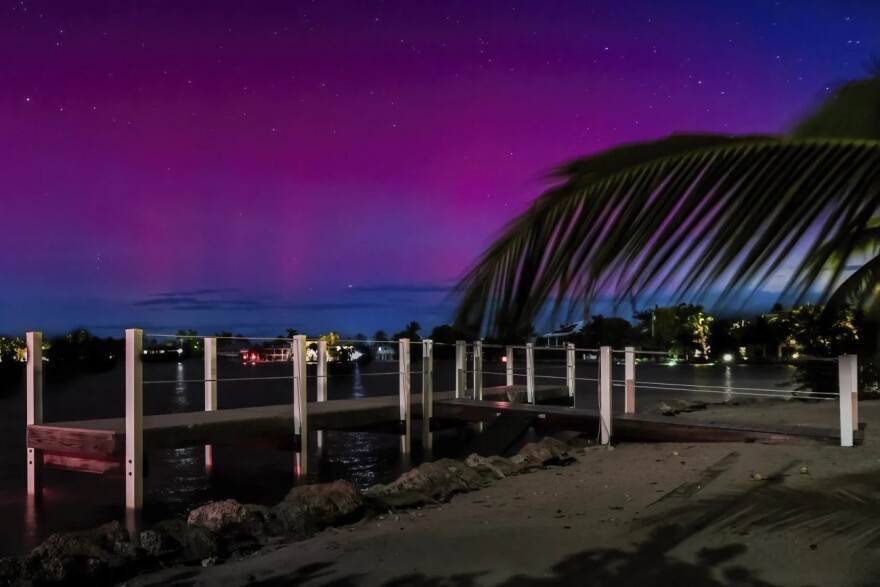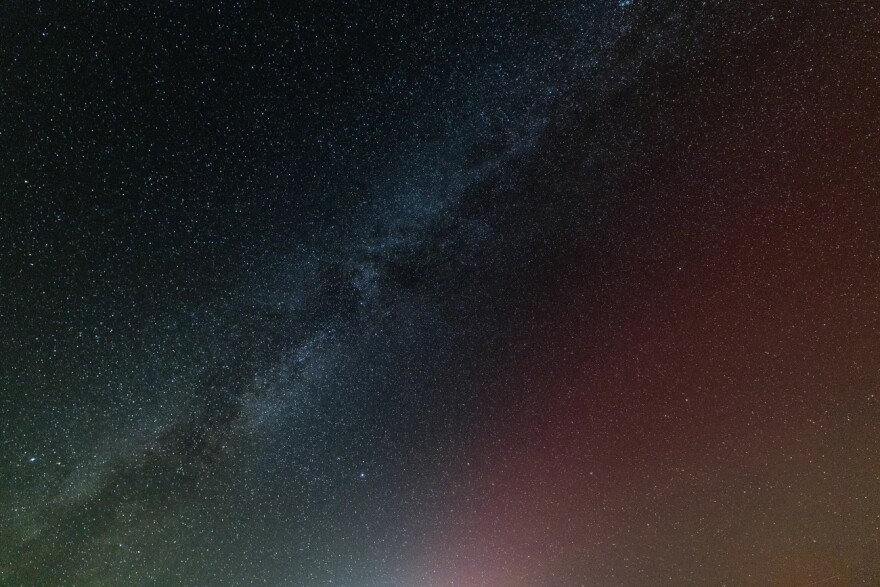On Thursday, the northern lights — also known as the aurora borealis — illuminated vast expanses of Europe and the United States.
The rare and fleeting appearance brought many to a standstill, evoking a moment of awe and wonder in seasoned aurora chasers and novice stargazers alike.
Some kept their eyes peeled all night at the evening sky, while others were delightfully surprised by the sudden splashes of red, green and purple hues shimmering above them.
The dazzling display of color was the result of a powerful solar storm that slammed into Earth. People typically travel to Alaska, Iceland and other regions within the Arctic Circle to witness the celestial phenomenon. But the geomagnetic storm triggered the aurora to light up night skies farther out. It's the second time a severe solar storm crashed into Earth this year, the first being in May.
The light show was expected to be visible as far south as Alabama and northern California, according to the National Oceanic and Atmospheric Administration. But some reported seeing the aurora as far south as Texas and Arizona, as well as in Australia.
And sky-watchers who missed the show may have another chance to see the lights — experts say they could pop out again during the weekend.















